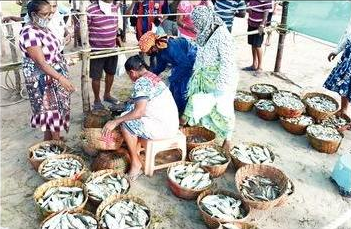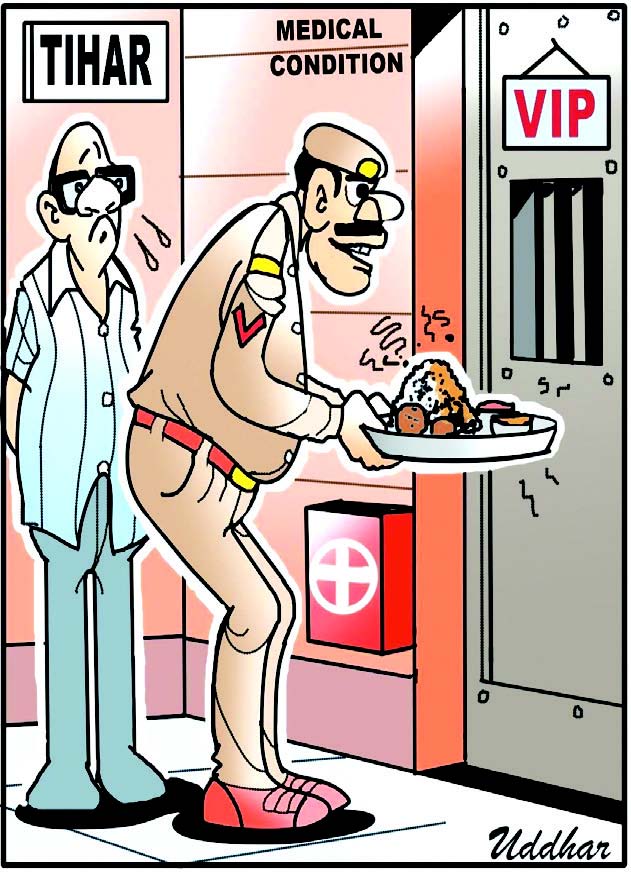
Plastino D’Costa
In the past four weeks, the Supreme Court of India gave very good judgments on some long pending cases. One of them was the Adjusted Gross Revenue concerning telecom companies, famously known as the AGR verdict, which was pending for a long time. The parties involved were the currently operating telecom companies, but the Supreme Court at the fag-end of the hearings also pulled up telecom companies which had declared themselves bankrupt. The court felt that there could be a possibility that these companies chose to deliberately declare bankruptcy to avoid paying the AGR and spectrum dues the companies owed to the government of India, which actually means money owed to the people of India. But this piece is not really about the above judgment; it is about how the court made its point very clear that spectrum is the country’s natural resource and cannot be traded, which many companies in bankruptcy proceedings were attempting to do, without clearing government dues.
What is spectrum exactly? They are basically radio frequencies allotted to mobile companies for communication over the airwaves. A mobile company may buy additional frequencies as per their requirement and demand so as to allow them to connect more users. The spectrum is a valuable natural resource of the country and therefore the government puts it up for auction. The government then gives the rights to the highest bidder but only for a limited period of time and not for eternity.
Due to lack of time and space, here are some of the comments made in the September 1, 2020 AGR Supreme Court judgment regarding natural resources. “The spectrum is a scarce recognised natural resource”. “the natural resource belongs to the people”. “The state acts as a guardian and trustee of the natural resource”. “Natural resources must always be used in the country’s interest, not private interest”. During the hearings of the case there were detailed deliberations on the topic of spectrum being a natural resource and the real owners were the people of the country.
Imagine the wisdom of the Supreme Court, as it pulled up bankrupt mobile operators trying to hoodwink the system, by letting them know the real owners of the natural resource are the people of the country, in this case spectrum which they had traded without clearing government dues. A resource that actually is invisible and yet sought after because of the huge demand it has. The government of Goa owns on behalf of the people of Goa huge amounts of natural resources which over a period of time have either been treated as the personal property of politicians or their ‘charlies’ or given away for a song to the chosen few. Natural resources that is visible, unlike the invisible spectrum, and also with huge demand. Be it the iron ore, large tracts of Goan real estate or a simple perishable product such as fish.
This is the price we Goans have to pay for selling our votes for cash or kind and make sure we vote for the same Charlies for decades. We were slaves then and we are slaves now, only the method has changed, as we have now evolved into high-tech sophisticated followers of politicians on social media. We allowed them to take away Goa’s soil, Goa’s land and now they are in the process of taking over our food. If the Supreme Court can be tough on an invisible spectrum trading, why is the Government of Goa lagging behind in declaring fish a natural resource and an essential product belonging to the people of Goa and to be sold to Goans only at affordable prices?
One can excuse our Generation past for not understanding how iron ore was taken away from them even if it meant losing ground under their feet, but humans don’t exactly consume iron ore directly, so it turned out to be case of ‘out of sight out of mind’. But there is no excuse of fish, also a natural resource, being taken away from the Goan fish market and then deprive Goans the right to buy their fish at the right price.
Who decides the right price? Forget demand supply for the moment which is manipulated. The government machinery was quick to point out recently there was no social distance maintained by Goans while buying fish, but nobody bothered to figure out why. It’s a simple case of huge pent up demand that made Goans go berserk. Usually, pent up demand takes place when people are deprived of a certain product for long periods of time. We will see the same pent up demand in other products, once we put the pandemic behind us and things get normal.
The Government is very quick in making rules in disciplining Goans to stand in queues and quietly buy what is given to them, but hardly any attention is paid on how the wholesale fish is handled at source by the fishing community. While the government is planning to register the humble bread man, there are no signs of any regulation on the new fish sellers selling fish anywhere and everywhere by displacing the original fish sellers. Registration alone is not going to serve any purpose, if the customer is not protected by law the right to information about the source of fish, the origin and the time of the fish catch.
In the telecom sector there was a problem of predatory pricing and many companies went bust because they were competing with low prices to kill each other. The fishing business in Goa is exactly the opposite; they charge exorbitant prices for a natural resource that originally belongs to the people of Goa. Therefore the government is advised to workout the pricing math backwards. Fix the price of fish first and let the fishing community align their costs accordingly. That way they stay in business only if they are smart and hardworking enough to control their cost. The Goan customer cannot be made to pay a high price for their inefficiencies in handling their business.
(The author is a business consultant)
